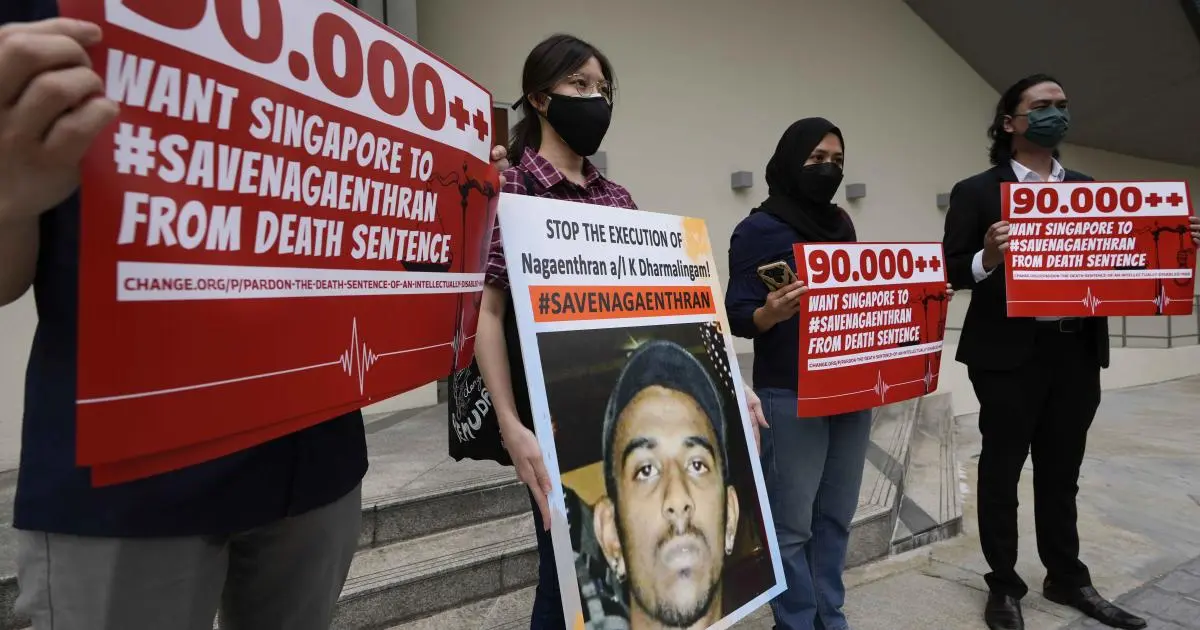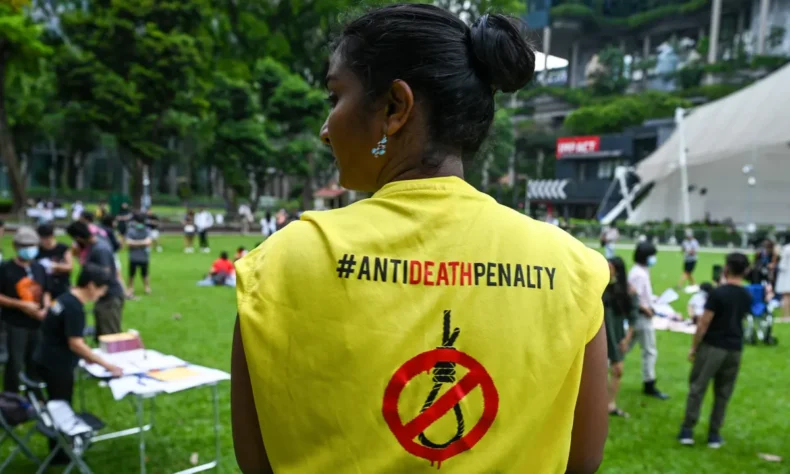Capital punishment, usually known as the death penalty, has long been a source of contention around the world. While numerous countries have abandoned the practice, Singapore is one of the few countries that still uses the death penalty for specific offenses. This article dives into Singapore’s capital punishment system, its legal structure, and real-life instances that have sparked debates about the ethics and practicality of this procedure.

Source – Human Rights Watch
The Legal Landscape of Capital Punishment in Singapore
Singapore’s judicial system includes the death penalty as a deterrent and combative tool for significant offenses, including drug trafficking and murder. The Misuse of Drugs Act and Penal Code of the city-state describe the offenses for which the death sentence can be inflicted, making it an essential component of the country’s approach to preserving law and order.
The Mandatory Death Penalty
The mandatory death penalty for certain drug trafficking and murder convictions characterizes Singapore’s attitude on capital punishment. This means that judges have no discretion in sentencing, which has sparked controversy regarding the fairness of such a system. Critics contend that because each case is regarded as similar, regardless of particular circumstances, this lack of judicial discretion might lead to unjust conclusions.
The Case of Van Tuong Nguyen
One of the most high-profile cases included Van Tuong Nguyen, a young Australian man detained in 2002 at Changi Airport for attempting to transport heroin. Despite international calls for mercy, he was executed in 2005, prompting significant outrage and discussion regarding the death penalty’s usefulness as a deterrent.
The Yong Vui Kong Case
In 2007, Malaysian native Yong Vui Kong was arrested for heroin trafficking. His case drew international attention, and his sentence was subsequently commuted to life imprisonment after Singapore’s obligatory death penalty regulations were changed. This case focused light on the possibility of rehabilitation and called into question the necessity of the death penalty.
The Kho Jabing Case
In 2010, Malaysian Kho Jabing was convicted of murder. His case went through several judicial proceedings, which resulted in his death sentence being reversed and then reaffirmed. The uncertainty surrounding his case sparked debate about the humanity of the death sentence and the emotional toll it exacts on both the condemned and their families.
Effectiveness and Ethical Concerns
Capital punishment supporters claim that it serves as a strong deterrence to grave crimes, protecting society. Opponents, on the other hand, raise serious ethical issues about the irreversible nature of the punishment, the possibility of court errors, and the right to life. The global trend toward elimination of the death sentence reflects these concerns and emphasizes the necessity for a thorough reevaluation of its effectiveness.
Evolving Perspectives and Future Outlook
Singapore has shown signals of rethinking its approach to capital punishment in recent years. The readiness to accept alternative sentencing choices is demonstrated by the modification of mandatory death sentence laws in specific circumstances, as witnessed with Yong Vui Kong. As global perceptions continue to alter, there is optimism in Singapore for a more nuanced and sensitive approach to justice.
Capital punishment is a contentious issue in Singapore, with passionate views on both sides. Real-life occurrences such as the ones described above emphasize the complexities of this practice and its repercussions for individuals, families, and society as a whole. Singapore faces the difficulty of striking a careful balance between preserving law and order and upholding fundamental human rights principles as the globe evolves toward a more humanitarian and progressive approach to justice. Only time will tell how the city-state navigates this perilous road ahead.
Singapore is at a crossroads in the face of worldwide scrutiny and shifting global attitudes, with the debate over capital punishment shaping its legal landscape and societal norms. As the country grapples with the complexities of this subject, the journey toward a more equitable and compassionate system of justice continues.













